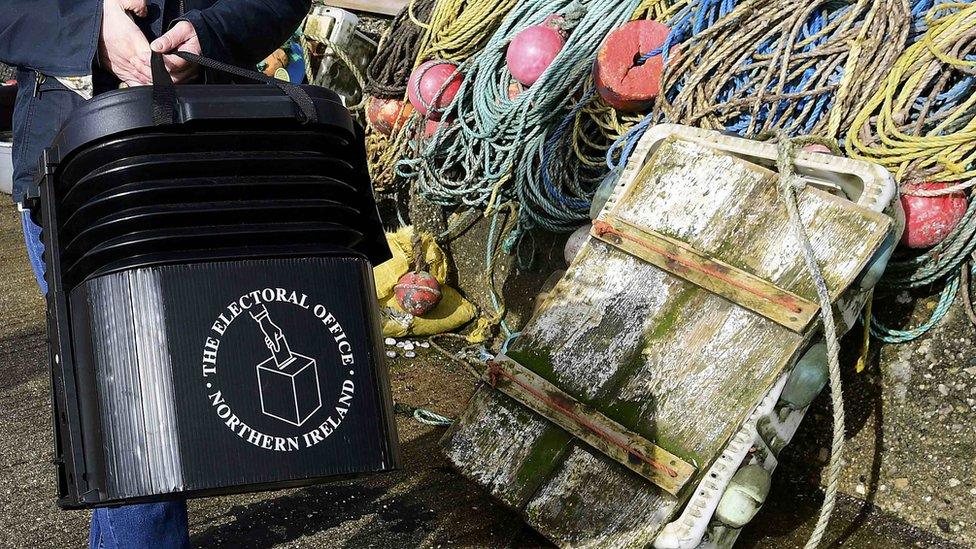General election 2017: Call for language act a sign of the times
- Published
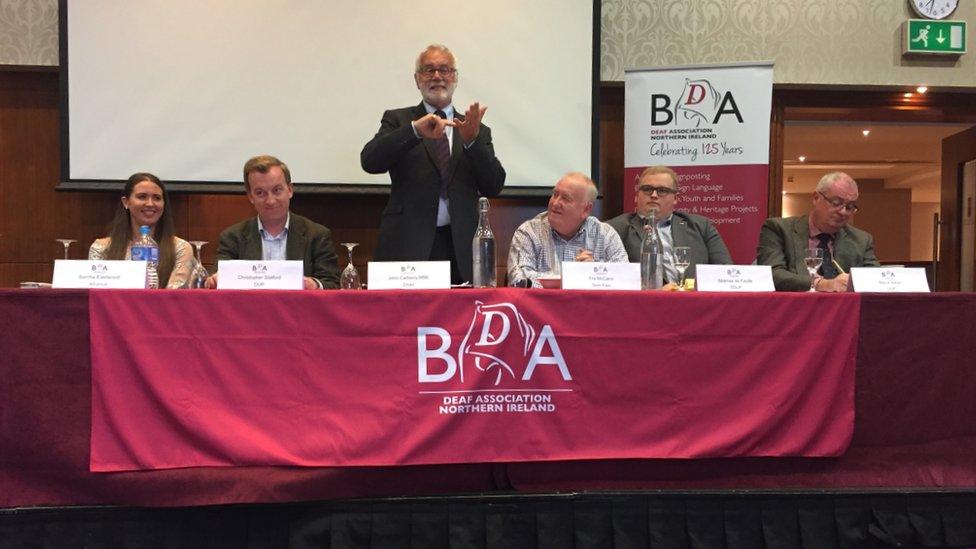
Talk of an Irish language act has been high on Northern Ireland's political agenda in 2017, but it's not the only language that's been up for discussion.
About 300,000 people in Northern Ireland are deaf or have hearing difficulties.
And an organisation that supports them is pressing for sign language legislation, making it a top priority in the general election campaign.
It is something that the British Deaf Association has demanded since 2001.
On Wednesday night, the organisation held a hustings in Belfast, with dozens of people attending the Question Time style event with the five main Northern Ireland parties.
Sign language interpreters were on stage to translate for deaf audience members, and a translator spoke on behalf of deaf people who wanted to ask a question.
Language of need
Some of the deaf people at the event said that when parties come to their door to canvass, there's no way for them to engage.
That's because parties don't have sign language interpreters with them, nor British sign language interpretations of their manifestos.
British Deaf Association member Brian Symington told the hustings that sign language was a "language of need".
It deserved legislation to be prioritised over an Irish or Ulster-Scots act, he said, as many people who use it learn it through necessity rather than choice.
After the event, Colette Blair and Eamonn McCaffrey, who are both deaf, spoke to the BBC with the help of a sign language translator.
Colette said a sign language act, similar to what has already been introduced in Scotland, would "transform" her life and the lives of other deaf people.
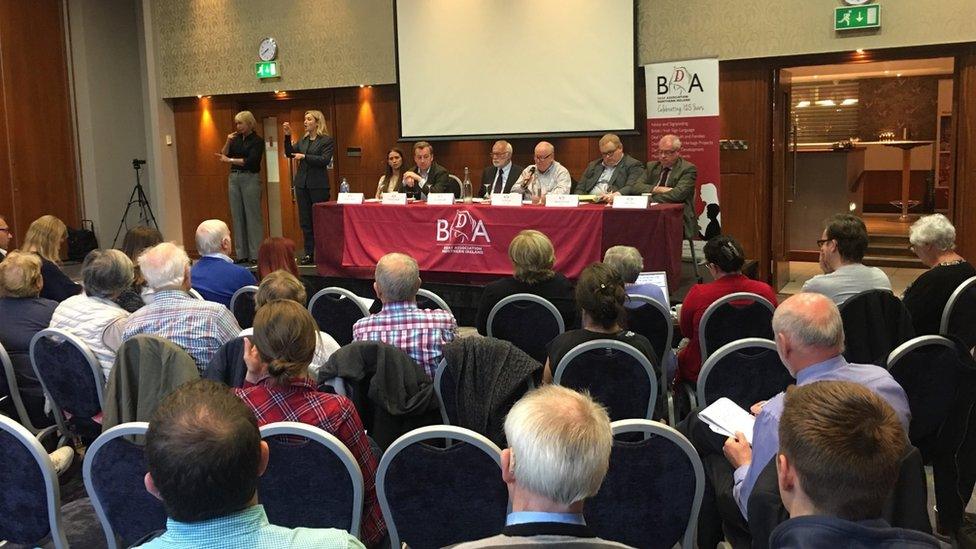
Deaf voters put their questions to election hopefuls at a hustings in Belfast
"In education settings, in terms of access to the curriculum and if we want to have interpreters for meetings, we need to know what's going on," she said.
"Speaking as a mum who's tried to work for my child going through the system, we need to have it in law."
Eamonn, who teaches sign language, said he wants to see it taught in schools.
"Everyone learns German and French but they never use it again in their life," he said.
"People who would learn sign language here would have the opportunity to use it and speak to deaf people here in Northern Ireland."
A continuous fight
Both Colette and Eamonn said the hustings was their only real chance to engage in debate around the general election.
"My neighbours talk to each other about politics - I don't get the chance to just chat to people, that's why tonight's so important," said Colette.
Wendy Newbrauner is a mum of three children who are all deaf, and she said it's been a real struggle for her family.
"The parties need to look at how to make lives easier for parents of deaf children," she said.
"It is a continuous fight to access services and support that are vital for their everyday lives and to make their lives easier."
Eamonn added that he and others like him are prepared to keep fighting to make sure sign language gets the recognition it deserves.
"We are a determined people - we will keep going.
"We have to think of the future generations coming through - they need a better future."

Feeling the pinch
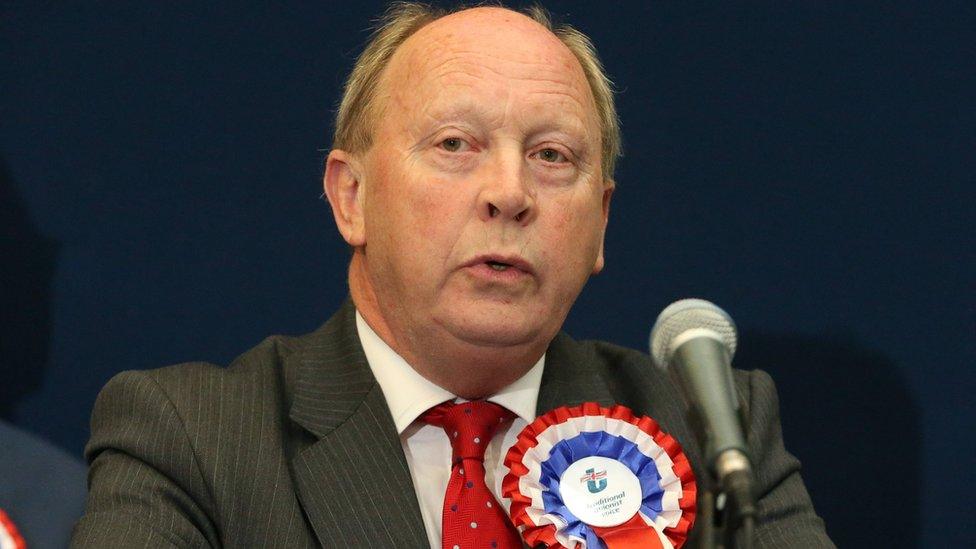
Jim Allister said his party is keeping its cash in case of another assembly election
Facing a third election in 13 months, the TUV is feeling "the pinch in terms of finances", according to leader Jim Allister.
His decision to field a single candidate in this election was a strategic one, with one eye firmly on the future.
"There's the prospect of another assembly election in the autumn, so strategically we decided we'd preserve some of our resources for that," said Mr Allister.
"We're fighting in our heartland of North Antrim - I regret that we're not fighting wider than that."
Mr Allister was on the campaign trail with Ulster Unionist Tom Elliott in Fermanagh and South Tyrone this week, and in spite of his rasping criticism of the party in the past he saw no contradiction in joining its canvass.
That's because the battle for the constituency is on a "knife-edge".
"Not just unionists but democrats would want to see the election of somebody who's prepared to do the job and do it well as Tom Elliott has already done," he said.
"My presence there was a conscious demonstration of unionist unity in support of an agreed unionist candidate, far in preference to the return of somebody who wouldn't even go to represent the people.
"That's what abstentionism is - it's claiming to be an MP but doing it under false pretences."

In case you missed it...
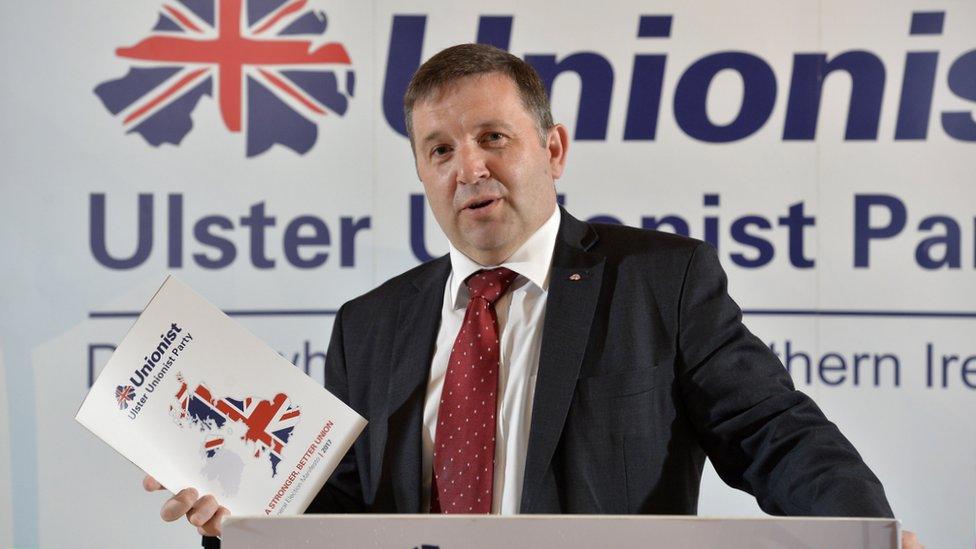
Elsewhere on the campaign trail on Thursday...
The Ulster Unionist Party presented its manifesto, with leader Robin Swann (above) saying special EU status for Northern Ireland would lead to a "united Ireland by the back door"
The election bunfight for South Belfast is profiled by our political editor Mark Devenport - which candidate will have their cake and eat it?

BBC News NI's Campaign Catch-up will keep you across the general election trail with a daily dose of the main stories, the minor ones and the lighter moments in the run up to polling day on Thursday 8 June.
Hear more on BBC Radio Ulster's Evening Extra at 17:40 each weekday.
- Published31 May 2017
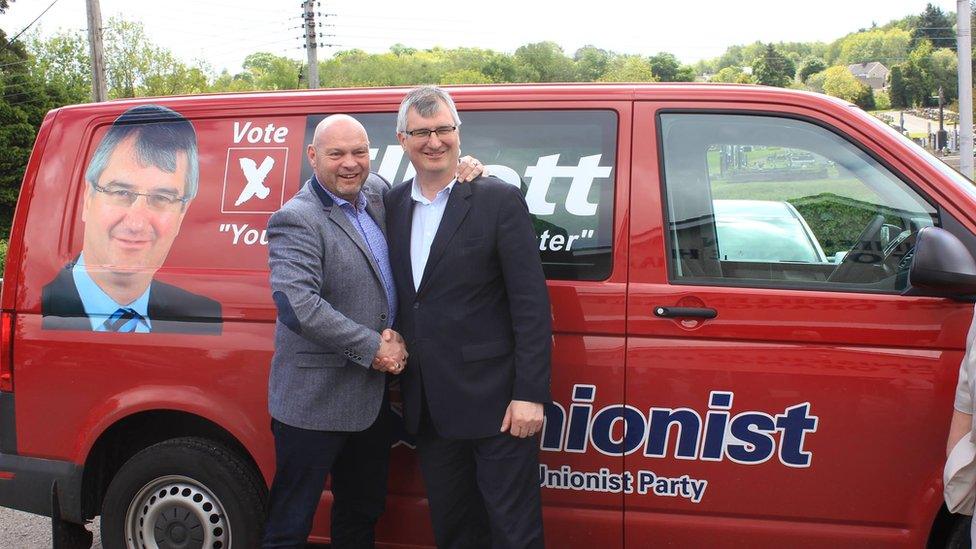
- Published30 May 2017
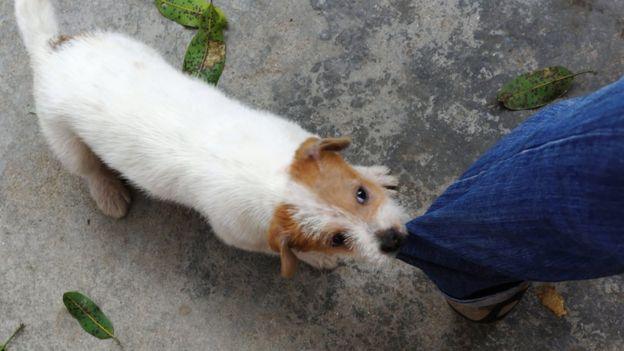
- Published26 May 2017
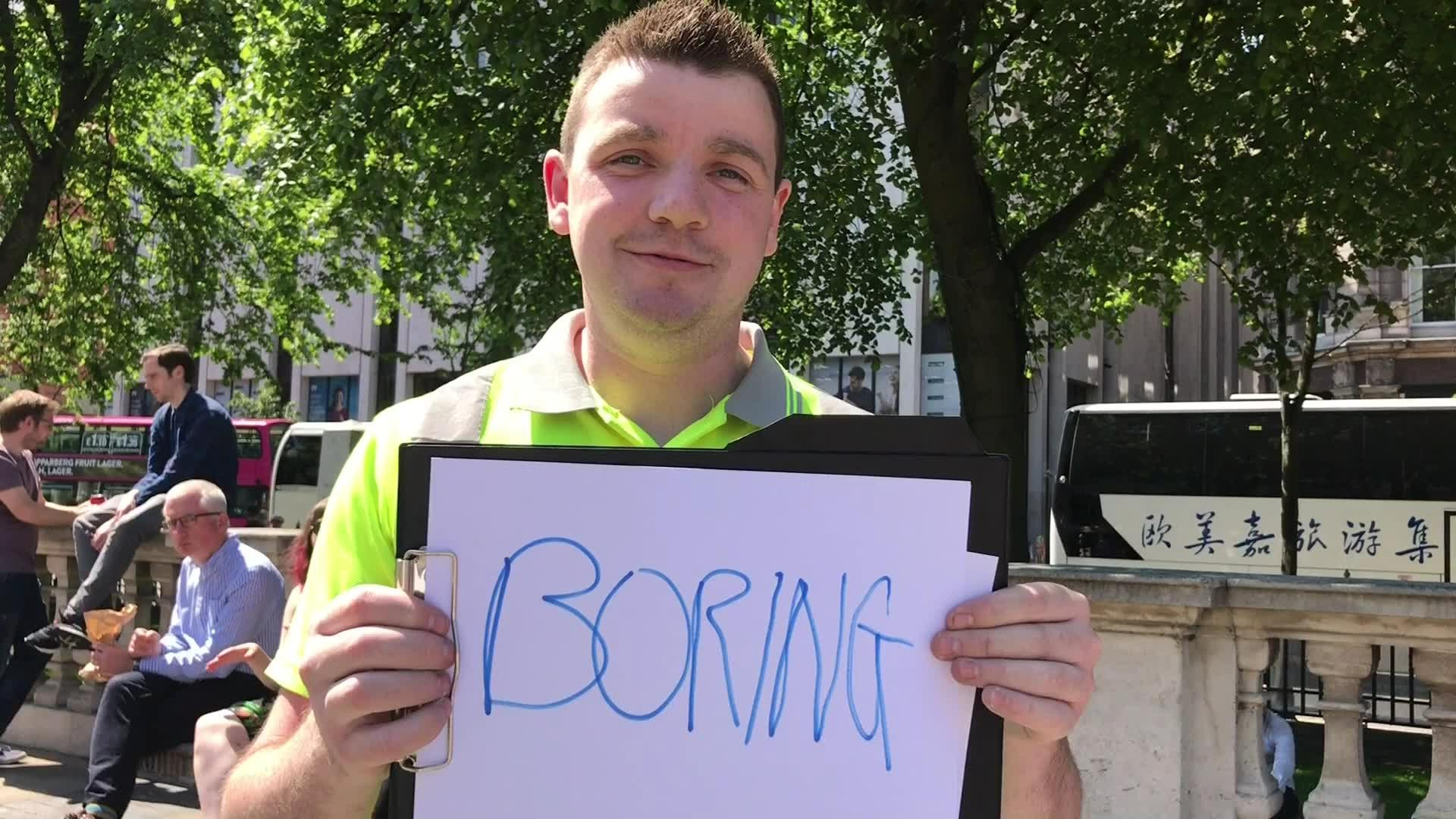
- Published25 May 2017
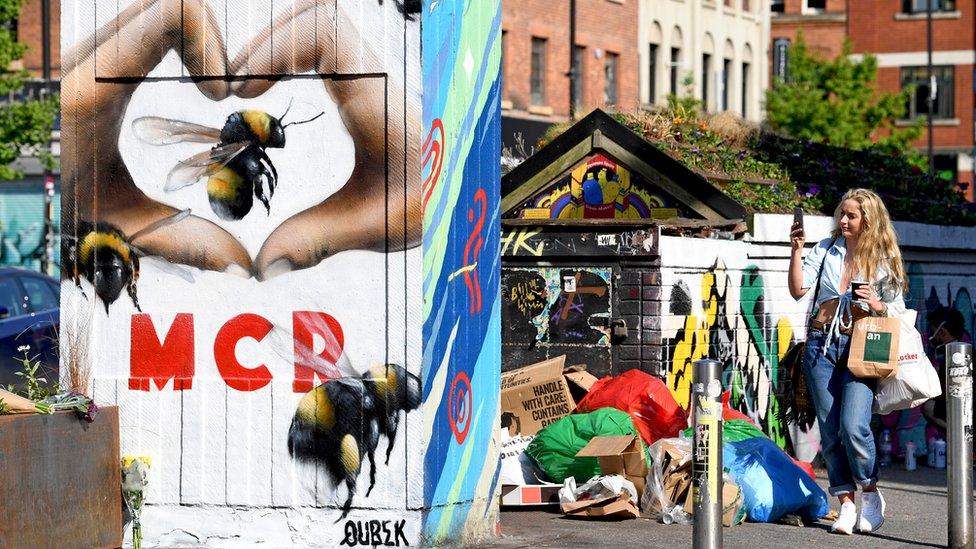
- Published22 May 2017
